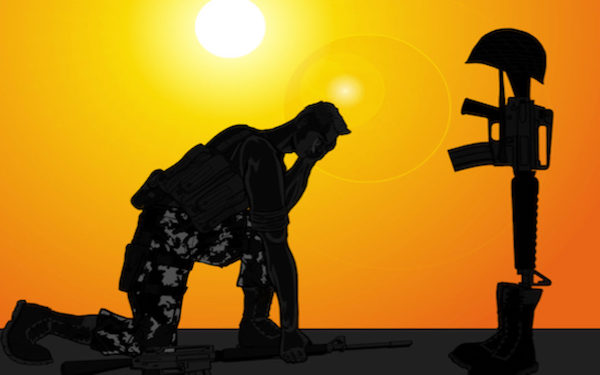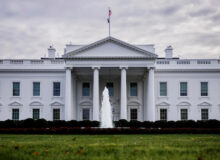Our country pauses on Monday to remember the men and women who gave the ultimate sacrifice to this nation.
As always, I implore you to make Memorial Day more significant than a simple day off work or the supposed “unofficial start of summer.”
Memorial Day began 155 years ago when Civil War General, Congressman, and future President James Garfield addressed more than 5,000 families of the fallen at an Arlington National Cemetery ceremony.
Known as “Decoration Day” to honor the 650,000 men — equivalent to over 7 million today — who lost their lives in our country’s bloodiest war, the holiday was observed on May 30 for over a century. It received its initial moniker when citizens honored soldiers by decorating their graves with flowers. As years went on, we included all veterans who perished defending the United States.
It’s a good bet that, when established in 1868, most Americans memorialized someone they personally knew who was killed at war. Now there are entire towns where families haven’t sent anyone to fight in the Global War on Terror or mourned with a gold star parent.
A few years ago, Gallup reported that fewer than three in 10 Americans knew the actual purpose of Memorial Day. This may contribute to why some veterans believe the public doesn’t understand their stories and issues.
There is no excuse for such disconnect.
We have many, many books and many, many films about modern-day warriors. There are ways to honor our dauntless fallen heroes, whether by visiting a memorial, attending a parade in your community, or supporting organizations that aid soldiers. I spent five years of my career doing so here.
During his call to make Decoration Day a national holiday, Maj. Gen. John Logan, who fought in the Mexican-American War and led a Union Army corps at Vicksburg, was clear:
“Let us, then, at the time appointed, gather around their sacred remains and garland the passionless mounds above them with choicest flowers of springtime; let us raise above them the dear old flag they saved from dishonor; let us in this solemn presence renew our pledges to aid and assist those whom they have left among us as sacred charges upon the Nation’s gratitude — the soldier’s and sailor’s widow and orphan.”
Two of Abraham Lincoln’s most-famous speeches mention soldiers’ graves. His first inaugural concluded by invoking “mystic chords of memory, stretching from every battlefield, and patriot grave, to every living heart and hearthstone.”
The Gettysburg Address, of course, was delivered at the dedication of that august military cemetery in Pennsylvania.
Nearly two decades ago this weekend, as a tribute to World War II veterans, the National World War II Memorial was dedicated on the Washington, D.C. Mall. The memorial was the first national version of its kind, honoring all who served during the Second World War.
Freedom has always come at a great cost, yet as George W. Bush said in his final Memorial Day speech as president, “The world has been transformed in unimaginable ways because of the noble service and devotion to duty of these brave individuals.”
Writing several years ago at Forbes, Psychologist Todd Essig listed ways to reflect and remember Memorial Day:
1. Make It Personal
2. Remember The War Is Not The Warrior
3. The Deep Tragic Trauma Of War
4. Memory And Gratitude Are Not Enough
5. You Owe The Deceased Your Vote







